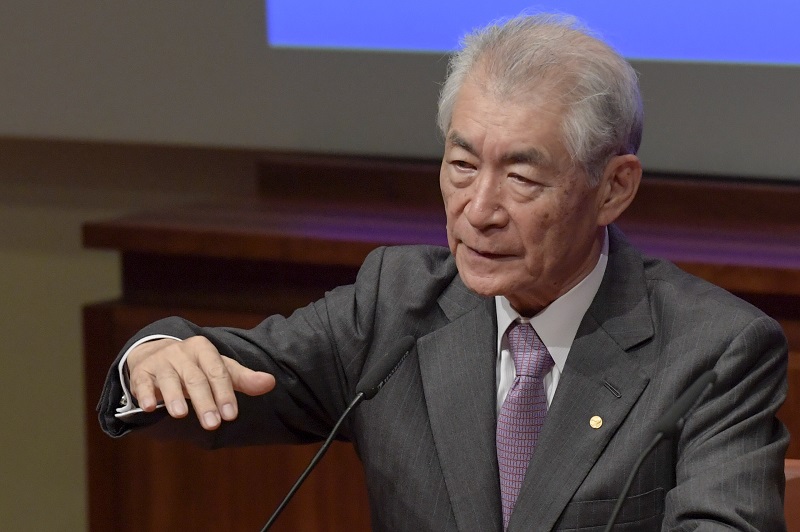
- ARAB NEWS
- 14 Jul 2025

KYOTO: A Japanese research team including Nobel Prize winner Tasuku Honjo says it has developed a new blood test to judge whether a major cancer immunotherapy treatment works for specific lung cancer patients.
Blockbuster immunotherapy cancer drug Opdivo was developed based on the outcomes of research by Honjo, professor at Kyoto University, who won the 2018 Nobel Prize in Physiology or Medicine.
In Japan, the drug has been approved for use in treating lung, large bowel and stomach cancer. But the drug is effective only for some patients.
Demand is increasing for a method to determine whether the expensive drug will work for specific patients.
The team examined T cells, which play a key role in the immune reaction, from blood samples taken from 54 lung cancer patients before and after their use of Opdivo, according to the team's study, published in the online version of the U.S. journal JCI Insight.
Combined analysis of four indicators related to T cell activity levels allowed the team to determine whether the drug would work in more than 90 pct of the 47 cases, or all cases except seven patients who dropped out of the research due to adverse side effects.
If the blood test is used at early stages of treatments using Opdivo, patients for whom the drug is confirmed not effective can swiftly move to other treatments. This would also help reduce wasteful use of the drug and medical costs.
The test "gives correct answers with a higher probability than existing methods. In addition, it reduces burdens for patients," said Kenji Chamoto, associate professor of Kyoto University.
JIJI Press